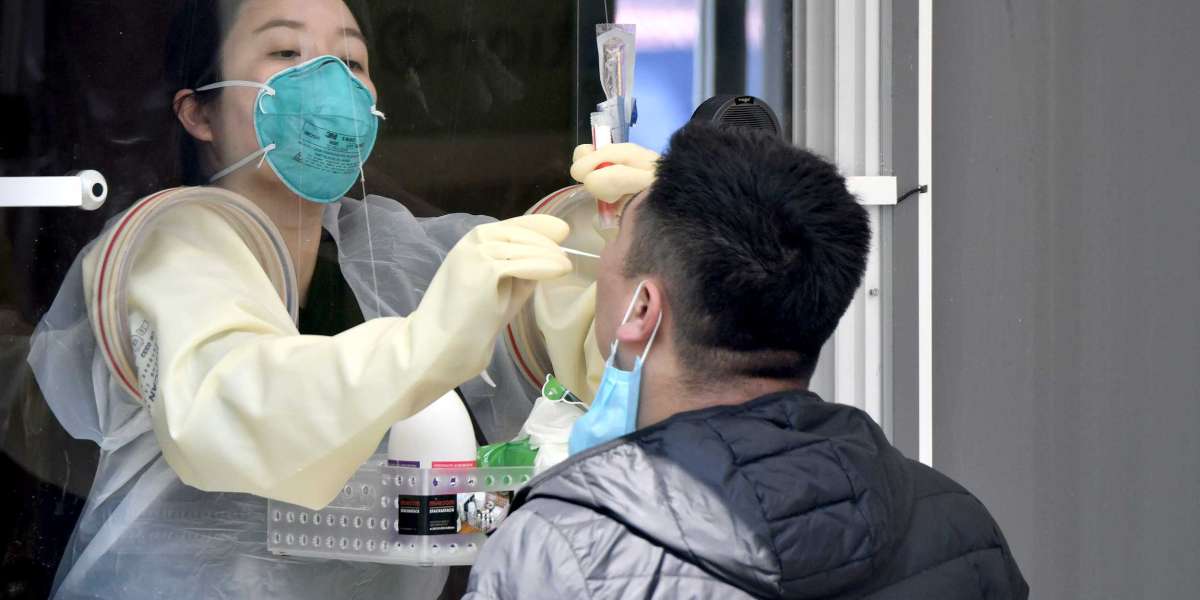According to leading health officials in South Korea, Omicron will take over the country in a matter of days.
During a government meeting on Tuesday, Minister of Health and Welfare Kwon Deok-Cheol stated that internal models predicted that omicron will "take a dominant role by this weekend," according to Reuters. "It is anticipated that the impending Seollal holiday would hasten its spread," he stated.
Omicron was found in 26.7 percent of all samples tested by the Korea Disease Control and Prevention Agency during the second week of January, according to statistics from that agency. On December 18, the rate was only 1.7 percent, which was the lowest in three weeks.
"In about three weeks' time, the omicron share in the country will rise to more than 90 percent of new cases," said Son Young-Rae, a spokesperson for the Health Ministry, in an interview with a public radio broadcaster on Tuesday. "The omicron share will overtake the delta variant as the predominant variant," he added. "By then, it will be impossible to avoid a surge."
According to a National Disease Control Agency analysis published on January 14, the number of cases reported each day could reach up to 30,000 by late February, and the number of ICU hospitalizations could reach up to 1,700 if restrictions of the same intensity as those currently in place are maintained.
Since the middle of December, high-risk enterprises have been subjected to 9 p.m. curfews, and people were only permitted to congregate in groups of four to six people. Following acute bed shortages caused by the Nov. 1 reopening, these limitations were reinstated to prevent further disruption.
Son stated that key metrics have remained "very stable" in the run-up to the takeover.
According to him, ICU admissions have dropped to less than 50% of all admissions in the last week, down from more than 80% in mid-December. Over the same time span, the average number of deaths each day has decreased by half, to approximately 290. Six instances were discovered for every 100,000 persons, compared to 13 cases for every 100,000 people previously.
"As omicron continues to gain prominence, it is possible that the constraints in place now will need to be relaxed even further," Son speculated.
Korea's Ministry of Health and Welfare has stated that once omicron takes control of the outbreak, the country would forgo its rigorous viral control policy known as 3T-test, trace, and treat — and instead focus on providing "tailored protection" for the most vulnerable.
Doctor Jung Jae-hun, a COVID-19 advisor to the prime minister, told Reuters in a phone interview that the traditional approaches to dealing with the epidemic "will no longer be viable."
"We can't tackle omicron in the same way that we approached the other variations. "It's a whole different virus — extremely contagious and less in severity," he explained.
It is estimated that the ability of omicron to hospitalize individuals is approximately 25 percent more than that of the delta. In the more than 5,000 confirmed cases of omicron that have been identified thus far, seven people were hospitalized with the severe or critical disease, and six patients died as a result of their illness.
Upon being asked about the level of preparedness of Korea for the omicron wave, he stated that certain difficulties were anticipated due to the large number of "self-isolating patients and their quarantined contacts."
When we start seeing roughly 50,000 patients each day, and three people are quarantined for every newly diagnosed patient, that means nearly 200,000 people are potentially placed under quarantine each day, he explained. "This has the potential to cause significant disruption to key services outside of health care."
According to him, Omicron's ascent to dominance in Korea looks to be slower than in other parts of the world, which is most likely due to the restrictions that were reinstated last month.
"In comparison to other countries, omicron has taken nearly twice as long to establish its supremacy in Korea. Delta was also a little slower at this location. "I believe this indicates that the measures we are taking to contain the surge are more effective."
More than six weeks have passed since the first cases were identified in the United States on December 1, although it takes roughly four weeks in other nations, according to him.
Jung went on to say that omicron will "infect practically all" of the country's unvaccinated inhabitants as a result of the outbreak. "You have two options: get vaccinated or receive COVID-19," he explained.
omicron will have an impact "just as dramatic" as it has elsewhere, according to Dr. Paik Soon-young, who is now retired from his position as emeritus professor of microbiology at the Catholic University of Korea.
Paik stated that the proportion of omicron cases was "doubling every week" in this area. "Omicron was detected in 26 percent of instances last week," says the researcher. In the preceding week, the figure was roughly 12 percent."
"Though Korea was able to buy some time, it was not by a significant amount. "It could be pushed out a few of weeks," he remarked. However, once omicron has gained dominance, it will "grow at an exponential rate." "It's difficult to anticipate how far it will spread," he said.



